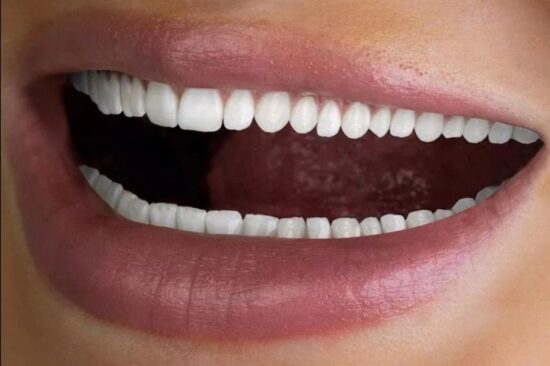A pill to replace CPAPs, “off the chart” lung cancer treatment, a drug to grow back teeth, and more
01 Jun 2024
Posted by Andrew Kantor
Preventing antipsychotic weight gain
Antipsychotics often cause a major side effect: weight gain. But Aussie researchers have found a method that not only prevents weight gain in patients but also increases serotonin levels by more than 250%.
It’s not a new drug; it’s a coating on an existing one, lurasidone. That coating does double duty: Inulin fiber feeds beneficial gut bacteria, while triglycerides help lurasidone absorb into the bloodstream.
The former is the big deal. ‘Normal’ antipsychotics disrupt the gut biome, leading to side effects like weight gain. The coating keeps that in check. (The speedier absorption means it doesn’t need to be taken with food, which can be a problem for some patients.)
Even better, because this is considered a reformulation, the approval path is a lot shorter.
“Unprecedented” lung cancer breakthrough
A phase-3 trial of lorlatinib — Pfizer’s cancer drug — against non-small cell lung cancer resulted in “the longest progression-free survival outcomes ever recorded” according to the Australian researchers who conducted the study with about 300 patients..
More than half of patients (60%) diagnosed with advanced forms of lung cancer who took lorlatinib were still alive five years later with no progression in their disease, data presented at the world’s largest cancer conference showed. The rate was 8% in patients treated with a standard drug, the trial found.
Accolades were coming fast and furious: “off the chart,” “unprecedented,” “unheard of,” “groundbreaking.” (Bucking tradition, no one said “game-changer.”)
Sleep apnea pill?
Instead of a clumsy CPAP machine (or surgery), why isn’t there a pharmaceutical treatment for sleep apnea? I want my solution in a pill, dagnabit!
Researchers at Cambridge, Mass.-based ApniMed (get it?) have heard the call, and their ED-209 AD-109 is entering stage-3 trials.
If it’s successful and approved, it’ll be the first drug approved for treating obstructive sleep apnea, and millions of CPAP machines will find themselves given the “Office Space” printer treatment.

AD-109 worked in phase-2 trials. It’s a combination of aroxybutynin and atomoxetine, showing “clinically meaningful improvement in [sleep apnea].” By that they mean that there was a reduction in the number of times someone stopped breathing while sleeping.
Oh, but the caveats. The drug worked pretty well for people with mild apnea, but not so well for patients with severe cases. (It dropped their apnea index, but they still had the condition, kinda like getting Lasik surgery but still needing lower-power glasses.)
And while the study saw a drop in stop-breathing events, they didn’t look at O2 saturation, which is pretty darned important. So even after these phase-3 trials, more research will be needed.
Latest GLP-1 quitting data
A new study based on records of almost 200,000 people found that about 26% of patients taking GLP-1 medications quit within 3 months, and 36.5% quit after a year.
Researchers at Evernorth Research Institute in St. Louis didn’t examine why people quit, but they noticed that quit rates were higher in poorer areas,, so price is a likely culprit. “Each 1–percentage point increase in out-of-pocket cost per a 30-day supply of GLP-1 agonist was associated with increased odds of discontinuation.”
Of note is that people who were obese but did not have diabetes were much more likely to quit than those who were diabetic. The researchers speculated that some people quit once they met their weight-loss goals (and didn’t realize they needed to keep taking the medication), or the side effects became too much of an issue.
Speaking of GLP-1 drugs….
They’re so hard to find that telehealth company Ro has set up a system where patients can sign up for email alerts when someone finds a GLP-1 drug available in their area — crowdsourcing the hunt as it were.
When supply is found, the company will automatically email patients nearby with the pharmacy, address, and phone number so they can call and ask the pharmacy to transfer their Rx from their current pharmacy.
Growing teeth with drugs
Japanese scientists are about to begin testing a new drug that grows teeth. Yep, you read that right. It’s designed to treat congenital tooth deficiency — when people don’t develop a full set of teeth — with initial results expected in about a year. (That first study will be on adult men who are missing teeth, followed by a second one for little kids who have been missing teeth since birth.)

The tooth regrowth medicine deactivates a protein called USAG-1, which inhibits the growth of teeth. The team believes that in the future it may be possible to grow teeth not only in people with congenital conditions, but also in those who have lost teeth due to cavities or injuries.
The Long Read: The unclear future of psychoactives
Psychoactive drugs like MDMA, ketamine, shrooms, and even LSD are getting a lot of attention lately. Depending on who you ask, they’re either incredible potential treatments for depression and PTSD, or a whole lot of wishful thinking.
It’s a maze of information and a minefield of opinions, and into that mess is strolling the FDA. Read more from KFF Health News.


